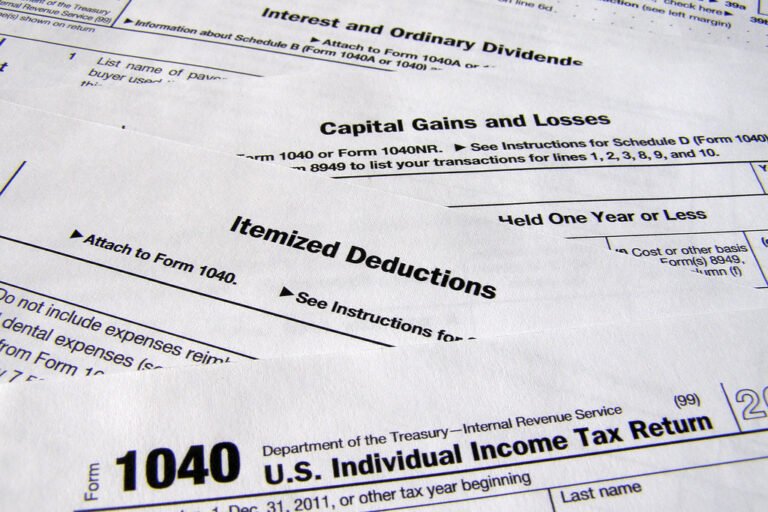How to Create a Retirement Budget That Works
Retirement is often portrayed as a golden chapter filled with relaxation and freedom, but behind the scenes, it requires careful planning-especially when it comes to managing your finances. Crafting a retirement budget that truly works is more than just crunching numbers; it’s about aligning your spending with your new lifestyle and long-term goals. Whether you’re just starting to think about retirement or already enjoying it, understanding how to build a realistic and flexible budget can be the key to financial peace of mind in your later years. In this article, we’ll explore practical strategies and thoughtful insights to help you design a retirement budget tailored to your unique journey.
Understanding Your Retirement Income Sources
One of the first steps toward crafting a realistic retirement budget is gaining clarity on where your money will come from once you stop working. Your income streams in retirement can be diverse, spanning from guaranteed government benefits to personal savings and investments. Common sources include:
- Social Security or equivalent national pension benefits
- Employer-sponsored pensions or annuities
- Personal retirement accounts such as 401(k)s, IRAs, or other investment portfolios
- Other income streams including rental properties, part-time work, or dividends
Understanding how each source contributes to your monthly cash flow allows you to pinpoint potential gaps and plan accordingly, ensuring you maintain your desired lifestyle without unwelcome surprises.
| Income Source | Average Monthly Amount | Reliability |
|---|---|---|
| Social Security | $1,500 | Highly reliable |
| Pension | $900 | Dependable if vested |
| Investment Withdrawals | $1,200 | Market-dependent |
| Part-time Work | $400 | Variable |
By breaking down these components into a visual summary like the table above, you can better anticipate fluctuations and strategize withdrawals. Don’t forget to factor in taxes and inflation, as they affect net income and purchasing power – two critical elements for sustaining comfort throughout retirement.
Assessing Essential versus Discretionary Expenses
Distinguishing between what you truly need and what you enjoy can make or break your retirement budget. Essential expenses cover the necessities, such as housing, utilities, healthcare, and groceries. These are the non-negotiables-costs that must be prioritized to maintain your well-being and daily comfort. It’s vital to keep a clear inventory of these commitments and regularly review them for any possible savings, like switching to a more affordable insurance plan or downsizing your home to reduce property taxes.
On the other hand, discretionary expenses are the lifestyle choices, including dining out, travel, hobbies, and entertainment. While these can enhance your quality of life, they are more flexible and can be adjusted based on your budget flow. Crafting a sustainable retirement budget means embracing this balance: allocate enough for a fulfilling retirement while keeping your essential needs secure. A simple way to visualize this divide is through a clear breakdown:
| Expense Type | Examples | Budget Priority |
|---|---|---|
| Essential | Mortgage/rent, utilities, medications | High |
| Discretionary | Dining out, vacations, hobbies | Flexible |
Incorporating Inflation and Unexpected Costs
When planning for retirement, it’s essential to build in a cushion that accounts for inflation and those unplanned expenses that can catch you off guard. Inflation gradually erodes purchasing power, meaning the cost of goods and services will likely rise each year. To maintain your lifestyle, allocate at least 2-3% annual increase to your budget estimates. This simple adjustment ensures your budget remains realistic and your savings stretch further over time.
Unexpected costs such as medical emergencies, home repairs, or assisting family members can disrupt even the most carefully constructed budget. Consider setting up a dedicated emergency fund or including a flexible spending category to cover these surprises without derailing your finances. Here’s a quick strategy outline to balance your budget effectively:
- Review and adjust your budget annually to reflect economic changes
- Maintain a separate emergency reserve covering 3-6 months of expenses
- Prioritize needs over wants but allow some room for occasional splurges
| Expense Type | Inflation Adjustment (%) |
|---|---|
| Healthcare | 5 |
| Housing | 3 |
| Groceries | 2 |
| Utilities | 3 |
Strategies for Adjusting Your Budget Over Time
Adapting your retirement budget is an ongoing process that demands both flexibility and foresight. As life changes-be it through unexpected medical expenses, shifts in housing costs, or changes in leisure activities-your budget should evolve to reflect these new realities. Regular reviews every six months or after significant financial events will help you stay ahead of surprises. This proactive approach allows you to reallocate funds efficiently and identify areas where trimming expenses won’t impact your quality of life.
Consider implementing a few practical techniques to fine-tune your financial plan:
- Track real-time spending using apps or spreadsheets to see where your money is actually going.
- Build an emergency cushion that grows gradually, so unexpected costs won’t derail your budget.
- Adjust discretionary spending first-like travel and dining-before cutting into essential expenses.
| Budget Aspect | Adjustment Tip |
|---|---|
| Healthcare | Increase buffer with supplemental insurance |
| Housing | Consider downsizing or refinancing options |
| Leisure | Explore low-cost local activities |
Future Outlook
Crafting a retirement budget that truly works is more than just numbers on a page-it’s about designing a financial roadmap that supports your dreams and adapts to life’s changes. By taking the time to understand your income, prioritize your expenses, and build in a cushion for the unexpected, you’re not just budgeting-you’re building peace of mind. Remember, the best retirement budget is one that grows with you, helping you enjoy each chapter on your own terms. So, as you step into this next phase, let your budget be a tool that empowers your freedom, not a constraint. After all, retirement is your time to live fully, with confidence and clarity guiding the way.








